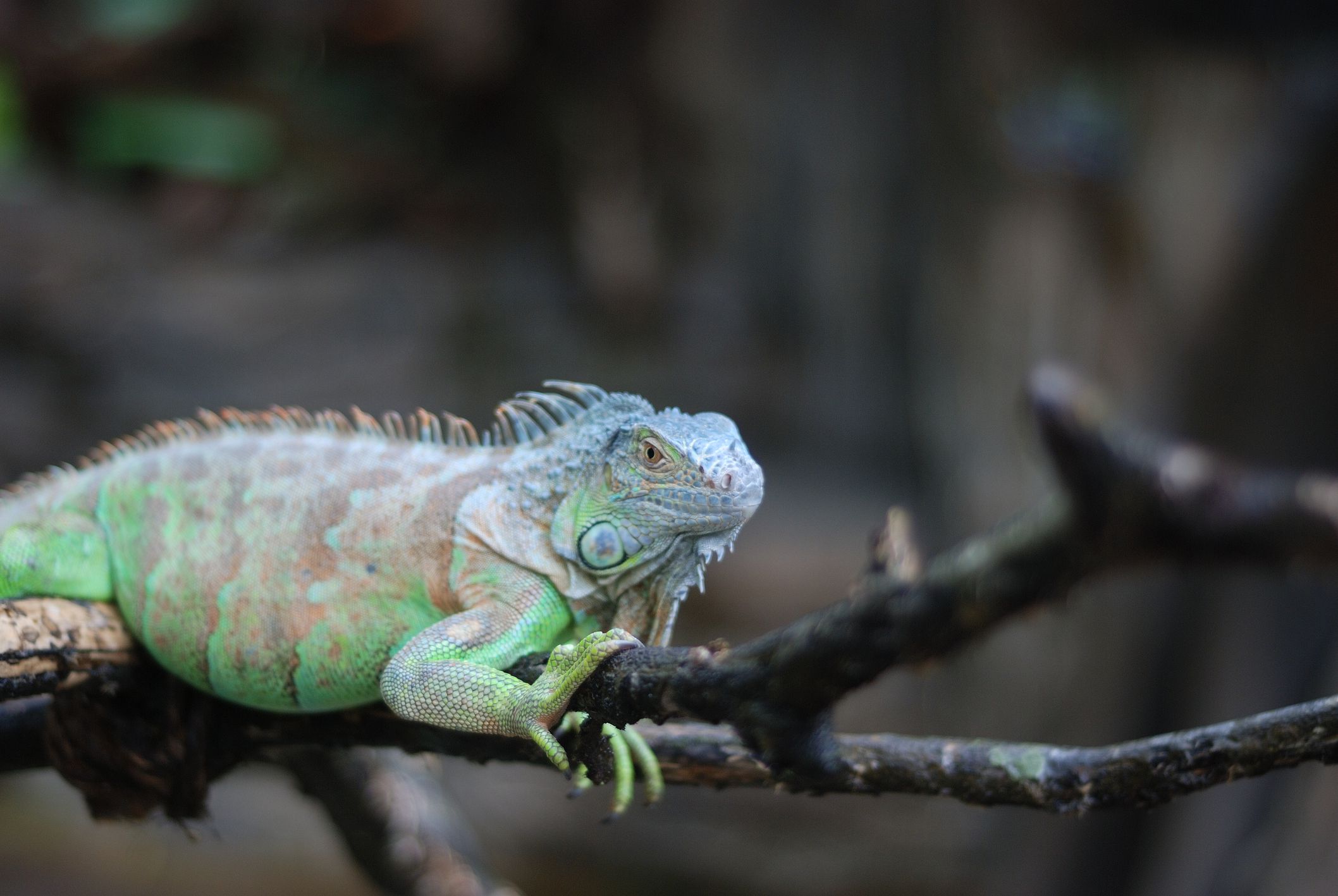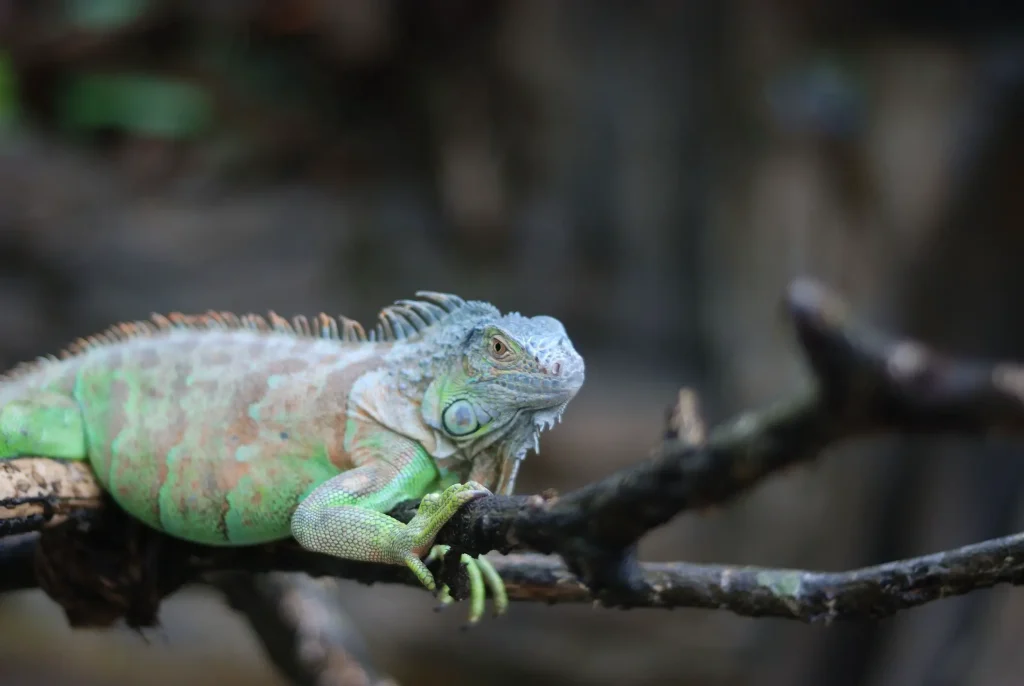Owning an iguana can be a rewarding and unique experience, but it also requires a great deal of responsibility. As exotic pets, iguanas require specific care and attention to ensure their health and well-being. If you are considering bringing an iguana into your home, it is important to understand the basic principles of iguana care, from their diet to their living environment. In this guide, we will provide you with the essential information you need to provide your pet iguana with a happy and healthy life.
If you’re considering an iguana as a pet, it’s important to know how to properly care for them. Keep their enclosure at the right temperature and humidity levels, feed them a balanced diet of vegetables and fruits, and provide them with a spacious and comfortable living space. Iguanas can live up to 20 years, so it’s important to be prepared for the long-term commitment of caring for one.

A Guide to Caring for Iguanas as Pets
Iguanas make for fascinating and unique pets for reptile enthusiasts. However, taking care of an iguana requires a certain level of knowledge and commitment. In this guide, we’ll take you through everything you need to know about caring for iguanas as pets.
1. Housing and Environment
Iguanas need a spacious and secure environment to thrive. A cage or enclosure that is at least 6 feet long and 6 feet high is ideal for an adult iguana. You should also provide UVB lighting, which is essential for their health and well-being. The temperature inside the enclosure should be maintained between 80-85 degrees Fahrenheit during the day and 75-80 degrees Fahrenheit at night.
It’s important to create a habitat that mimics their natural environment as much as possible. This includes providing branches, rocks, and other structures for them to climb on. You should also provide a shallow water dish that is large enough for them to soak in.
2. Feeding and Nutrition
Iguanas are herbivores, which means they only eat plants. A balanced diet for an iguana includes a variety of vegetables and fruits. Dark leafy greens such as kale, collard greens, and turnip greens should make up the majority of their diet. You can also feed them fruits such as strawberries, blueberries, and mangoes in moderation.
It’s important to avoid feeding them spinach, lettuce, and other vegetables that are high in oxalates, which can lead to health problems. You should also provide a calcium supplement to ensure their bones stay healthy.
3. Health and Wellness
Iguanas require regular check-ups with a reptile veterinarian to maintain their health and well-being. Signs of illness in iguanas include lack of appetite, lethargy, and changes in behavior. You should also keep an eye out for signs of respiratory infections and parasites.
Maintaining good hygiene is also important for their health. You should clean their enclosure regularly and provide fresh water daily. Iguanas also require regular baths to help with shedding and to keep their skin healthy.
4. Handling and Temperament
Iguanas can be skittish and aggressive, especially if they are not used to being handled. It’s important to approach them slowly and calmly and to avoid sudden movements. You should also avoid holding them by their tails, as this can cause injury.
It’s important to spend time with your iguana every day to help them become comfortable with you. You can start by simply sitting near their enclosure or offering them food from your hand. Over time, you can work up to handling them more regularly.
5. Pros and Cons of Owning an Iguana
Owning an iguana can be a rewarding experience for reptile enthusiasts. They are fascinating creatures that can live for up to 20 years with proper care. However, they also require a significant investment of time, money, and space. They can also be challenging to care for and may not be the best pet for everyone.
6. Iguanas vs. Other Reptile Pets
Compared to other reptile pets, iguanas require more space and specialized care. They may not be the best pet for beginners or those with limited space. However, they are unique and fascinating creatures that can make for a rewarding pet for those who are committed to their care.
7. Common Iguana Health Problems
Iguanas are prone to a variety of health problems, including respiratory infections, metabolic bone disease, and parasites. Signs of illness in iguanas include lack of appetite, lethargy, and changes in behavior. Regular check-ups with a reptile veterinarian can help prevent and treat these health issues.
8. Iguana Breeding and Reproduction
Breeding iguanas is a complex process that requires specialized knowledge and experience. Female iguanas can lay up to 50 eggs at a time, which require specific conditions to hatch successfully. It’s important to consult with a reptile veterinarian or experienced breeder before attempting to breed iguanas.
9. Iguana Training and Enrichment
Iguanas can be trained and enriched through positive reinforcement techniques. You can teach them to respond to commands such as “come” and “stay” and provide them with toys and activities to keep them mentally stimulated. It’s important to start training and enrichment early to help your iguana develop good habits.
10. Conclusion
Caring for an iguana requires a significant investment of time, money, and space. However, for those who are committed to their care, they can make for a fascinating and rewarding pet. By following the tips and guidelines in this guide, you can provide your iguana with a healthy and happy life.
Frequently Asked Questions
1. What are the basic requirements for iguana care?
Iguanas require a large enclosure that is adequately heated and lit, with a basking spot and a cooler area. They need a varied diet consisting mainly of leafy greens and vegetables, as well as occasional fruits and insects. It is important to maintain proper humidity levels and to provide a source of water for drinking and soaking.
In addition, iguanas require regular veterinary check-ups to ensure their health and well-being. Proper handling and socialization is also necessary for their mental and emotional health.
2. What health issues should I be aware of when caring for an iguana?
Iguanas are prone to a variety of health issues, including metabolic bone disease, respiratory infections, and parasites. It is important to provide a balanced diet and proper lighting to prevent metabolic bone disease. Respiratory infections can be caused by poor husbandry, such as inadequate heating and ventilation. Parasites can be prevented through regular veterinary check-ups and proper hygiene.
If you notice any signs of illness in your iguana, such as lethargy, loss of appetite, or abnormal behavior, it is important to seek veterinary care immediately.
3. How should I handle and interact with my pet iguana?
Iguanas require gentle, patient handling and socialization from an early age to become comfortable with human interaction. They should be approached slowly and calmly, and never grabbed or squeezed. It is important to support their entire body when lifting and holding them.
Iguanas also benefit from environmental enrichment, such as providing climbing branches and hiding spots in their enclosure. This can help reduce stress and promote natural behaviors.
4. How can I create a suitable enclosure for my iguana?
Iguanas require a large enclosure that allows for movement and exercise. The enclosure should be at least 6 feet long and 3 feet wide, with a height of at least 6 feet for adults. It should be made of sturdy materials, with a secure lid to prevent escape.
The enclosure should also provide a basking spot with a heat lamp, as well as a cooler area and a source of water for drinking and soaking. It is important to maintain proper humidity levels and to provide adequate lighting to support their health.
5. What should I consider before getting an iguana as a pet?
Before getting an iguana as a pet, it is important to consider their long lifespan and large size. They require a significant amount of space, time, and financial resources for proper care. It is also important to research local laws and regulations regarding ownership of exotic pets.
Iguanas can make rewarding pets for those who are committed to providing proper care and attention, but they are not suitable for everyone. It is important to carefully consider all factors before making the decision to bring an iguana into your home.
In conclusion, caring for iguanas can be a rewarding experience for those who are willing to put in the time and effort. It is important to provide them with a proper habitat, a nutritious diet, and regular veterinary care. By following these guidelines, you can ensure that your iguana will live a long and healthy life as a beloved pet.
Remember, iguanas require a significant amount of attention and care, so it is important to do your research before bringing one into your home. Make sure you have the proper resources and knowledge to provide for their needs and create a safe and stimulating environment for them to thrive in.
Overall, owning an iguana can be a fulfilling and enriching experience, but it is not a decision to be taken lightly. With patience, dedication, and a commitment to learning about their unique needs, you can provide your iguana with a happy and healthy life as a cherished member of your family.


